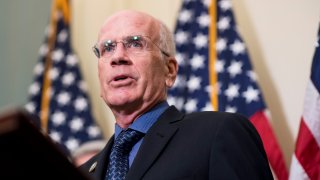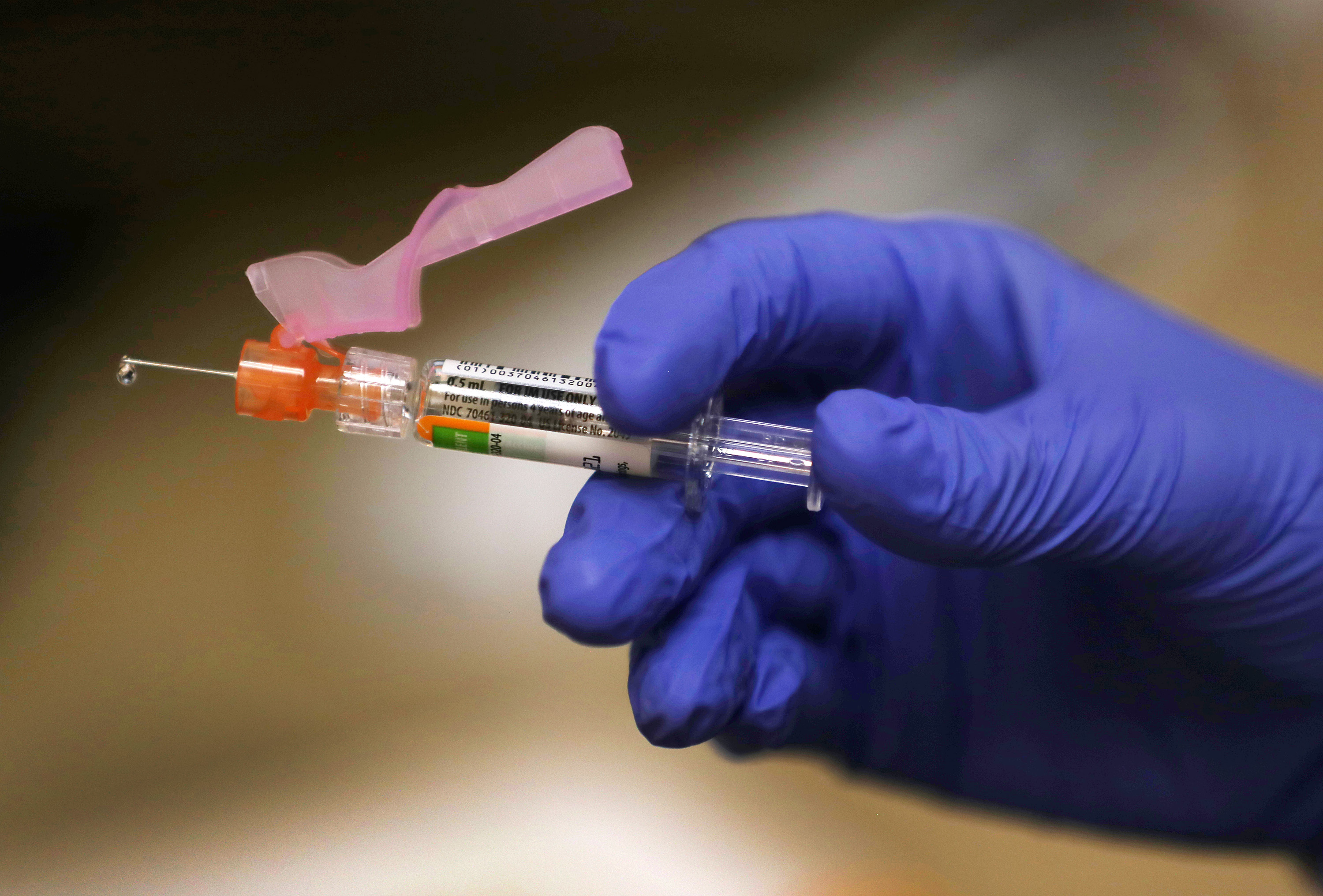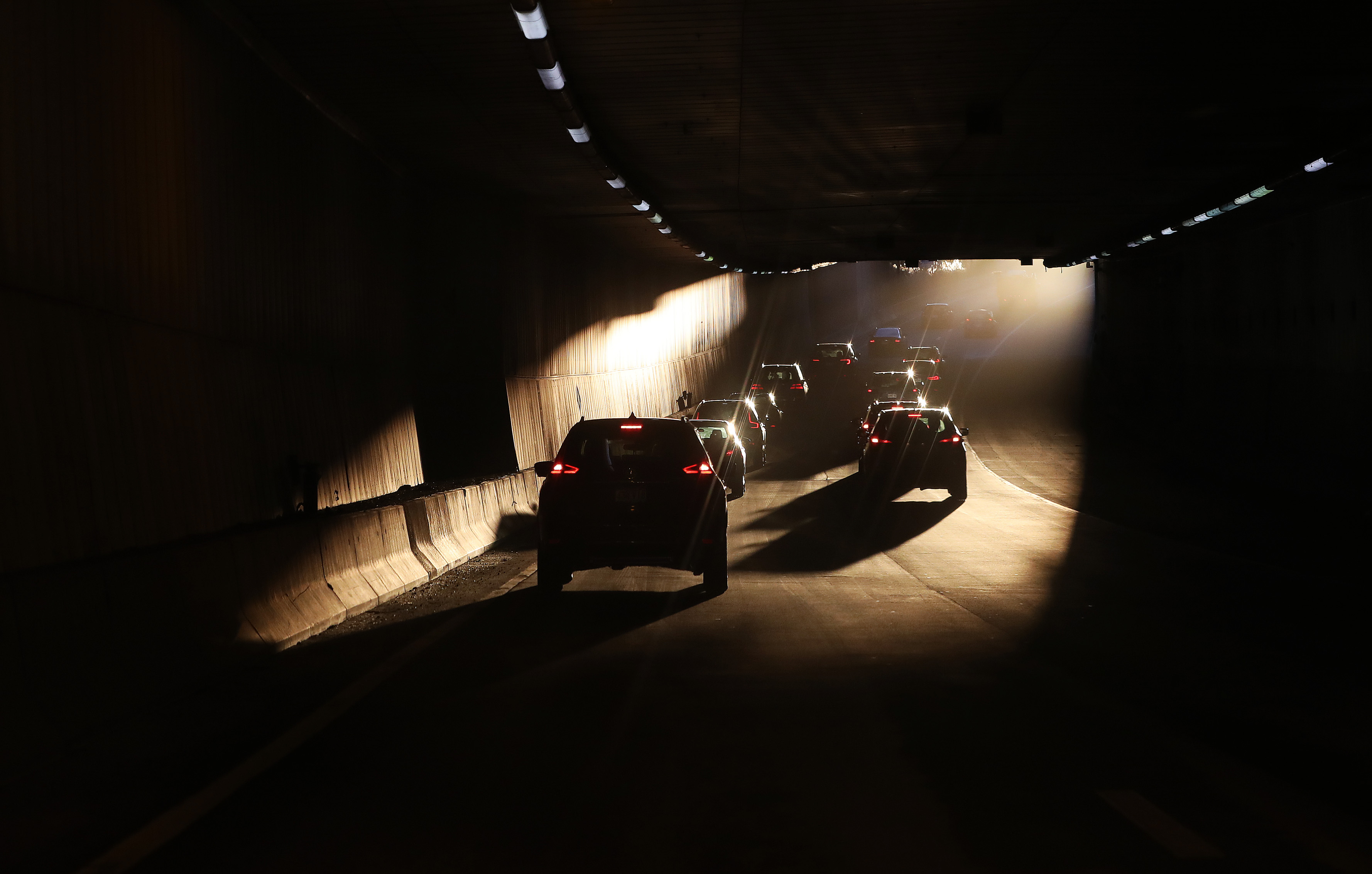
U.S. Congressman Peter Welch urged Vermonters to hang in there with the COVID federal relief package on the way, while Gov. Phil Scott announced new holiday gathering restrictions and the resumption of youth sports.
Under the more stringent rules around gatherings announced Tuesday, households may choose one other "trusted" household to gather with from Dec. 23 through Jan. 2, 2021. Gathering with more than one household, even if it's on different days, is not permitted. If the one other household is from out-of-state, everyone from both households must quarantine for seven days and get a test or quarantine for 14 days.
"Then we'll take a break to collect data. And once we get the data collected, we'll see where we go from there," Scott said.
"I want to thank Vermonters for their work and their sacrifices, which helped get us to this point," Scott said, noting it's been a little over a month since he tightened restrictions in the state, including shutting down bars and clubs, closing restaurants at 10 p.m. and limiting them to 50% occupancy.
The restrictions also require quarantine for all non-essential travel, paused recreational and school sports and prohibited social and recreational gatherings of all sizes.
Virus case numbers have since leveled out, with Vermont health officials reporting fewer than 100 new cases for several days.
"I know this has been hard, especially not being able to gather with family, but it's made a difference," Scott said.
Scott announced that youth and school sports will resume on Dec. 26 Tuesday. School-based and youth recreational sports teams may begin practices with individual skills, strength and conditioning drills, but no physical contact is allowed. Masks are required at all times.
Outdoor recreation like, sledding, snowshoeing, snowmobiling, cross country skiing, ice fishing, hiking, and other outdoor activities will return to prior guidance as well. All other mitigation measures, including bar and social club closures, and restaurant restrictions will remain in place.
"We know we'll still be managing this virus over the months ahead and that many Vermonters will continue to be impacted. Now, I hope we'll be able to rollback restrictions further as the financial impact on our businesses, and those still unemployed, has been significant," Scott said. "That's why I was relieved to see Congress pass a combined $1.4 trillion budget bill, and a $900 billion stimulus bill, this week."
Welch voted alongside other members of Congress to pass a $900 billion pandemic relief package Monday night that would deliver long-sought cash to businesses and people and resources to vaccinate a nation confronting a surge in COVID-19 cases and deaths.
"It's a good day if we can say that the bill is on the road to the president to be signed and help is on the way for Vermonter to help them get through the holidays and in the winter," Welch said.
"It's like we're on one side of the bridge. We can see the other side, the vaccines there, but as we make that journey, we've got to make sure that those businesses - like our restaurants and others that have been hanging on by the fingernails - can make it," Welch said. "And I think that's ultimately what brought Congress together over what had been a long and prolonged negotiation."
Lawmakers tacked on a $1.4 trillion catchall spending bill and thousands of pages of other end-of-session business in a massive bundle of bipartisan legislation as Capitol Hill prepared to close the books on the year. The bill goes to President Donald Trump for his signature, which is expected in the coming days.
Welch called the bill a "lifeline," for people who have been devastated by the coronavirus pandemic now going into a brutal winter. He pointed to provisions including a temporary, $300-per-week supplemental jobless benefit and a $600 direct stimulus payment to most Americans along with a new round of subsidies for hard-hit businesses, restaurants, and theaters and money for schools, health care providers and renters facing eviction.
"The good news of course is we have a vaccine and there is an aggressive effort to distribute the vaccine, get it injected into every citizen," Welch said. "That's going to take a while. And it took us a while in Washington to supplement the aid package that is absolutely essential so that folks in businesses - now that the end is in sight with the vaccine - can hang on and get from here to there."
Meanwhile, all of Vermont's hospitals have now received their allocation of the COVID-19 vaccine for the first week and have been busy vaccinating their higher-risk healthcare staff. Pharmacies including CVS, Walgreens and HealthDirect/Kinney Drugs are scheduled to begin clinics at long-term care facilities this week.
Health Commissioner Dr. Levine said a Tuesday shipment marked 11,400 doses of the newly authorized Moderna vaccine arriving in Vermont. The state also received some more of Pfizer's vaccine this week.
With a slightly less-than-anticipated allocation of 3,900 doses from Pfizer over the two week period that will have elapsed by the end of this week, that will make 18,725 doses total, bringing Vermont "well on our way," to the 34,000 doses expected by the end of the month, Levin said.
Although the vaccine's arrival is encouraging, health officials urged residents to stay focused on preventing the spread of COVID-19, especially with the upcoming holidays.
"Vaccines will help us beat the virus and begin our return to normal and while it's a huge milestone, we need to remember just because a vaccine exists, doesn't mean we can let our guard down," Scott said during a Friday press conference. "It will still be several more months before the vaccines starts to lower the infection rate of the virus."
State officials are waiting on recommendations from the Advisory Committee on Immunization Practices (ACIP), before finalizing the next priority group to get vaccinated. The ACIP was scheduled to meet over the weekend.
Levine said Friday that the next priority group will "almost certainly," involve some combination of people over 65 and people with chronic or immune compromising conditions.
“We need to be patient as we wait to make sure those at highest risk are protected right now,” Levine said. “While we won’t get to watch all the vaccinations that continue over the coming months like we saw the very first one, we can keep this in mind: every time a Vermonter gets vaccinated, all of us benefit.”
For those who do gather or travel for the holidays, Levine implored people on Friday to plan ahead. Get tested right after a gathering and again seven days later, as well as to quarantine for 14 days or seven days with a negative test result. Gatherings should be kept as small as possible and people should wear masks, keep a six-foot distance and go outside, he said.
“The guidance that is currently in place still calls for us to avoid social gatherings, and the CDC has also said: the safest way to celebrate is to celebrate at home with the people you live with,” Levine said. “The fact is, we need to acknowledge that some people will choose these higher risk activities, but if we can encourage them to take these steps, we can still help protect our communities from further spread."



